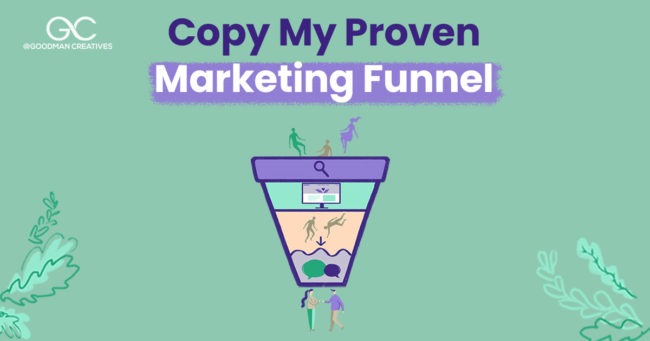Are you ready to upscale your content marketing strategy?
The COVID-19 pandemic has flipped the marketing world upside down, but it has also created new chances in the world of social media and content marketing, like the one serviced by the experiential marketing specialists.
From a pre-pandemic record of 3.6 billion searches per day to over 6 billion queries per day after March 2020, Google search traffic surged. This trend isn’t showing any sign of slowing down any time soon, either.
Having a well-thought-out marketing strategy might help you start a new business or expand an existing one. Even the best efforts might be scuppered by a few common marketing blunders.
We’ve compiled a list of 10 common content marketing mistakes to avoid that small businesses make. Avoid these and you’ll have a better chance of attracting clients.
1. Not having a clear vision
It is imperative that you have a clear idea of where you want to go before you begin. Before you start building anything, you need a clear picture of what you want to accomplish, just like an architect does before drawing up designs for a structure. There are a number of things to consider before you get started in marketing.
What’s your brand name? Which economic sector do you serve in? What exactly are you going to sell? What’s the point of starting this business? Are you able to fill a void with the screen recorder services you provide?
Using these questions, you can get to the heart of your goal.
2. Not having a strategy in place
Once you realize who you are and what your goals are, it’s time to put together a strategy. You won’t get there if you don’t have a destination in mind when you start out.
Try to visualize where you need to be in a year. Imagine where you want to be a year from now. Determine the measures you must take to reach your goals, just like you did in college with your course work. Be sure to keep a close eye on the results of your marketing efforts and make adjustments based on what is working and what isn’t.
3. You don’t know who your target audience is.
If you don’t know what your brand stands for, there’s nothing worse than not knowing who your target audience is. Without knowing your target audience, it’s impossible to effectively promote them.
Is selling baby food to tech CEOs something you’d be interested in doing? Whenever you’re marketing, keep an eye on your customers, and make sure to check your metrics to see who’s paying attention to what you’re saying.
4. Ignoring the demands of your customers
Why would you go against what your customers want? Keep your ideas and products to yourself if they don’t make sense for your target audience. Targeting the incorrect interests is the quickest and easiest method to upset and turn away potential customers.
Do some research if you’re unsure what your customers desire. Listen to their criticisms if you’re still not sure. Ask people to leave their thoughts in the comments section of your website, or set up a poll. What’s more, offer them what they’re asking for.
5. Not recognizing your individuality
New things are being created every day, and millions of people are offering billions of dollars’ worth of goods at any given time. Just because you have a product to sell does not make you stand out from the crowd.
When it comes time to market your business, keep in mind what makes you unique from the competition. Take advantage of your skills and eccentricities to help you succeed. People would remember you not just for what you sell but for how you sell it, so embrace your individuality and use it to your advantage.
6. Producing information that isn’t relevant in the long term
Shakespeare and 8-track tapes don’t have much in common. There are numerous advantages, but the most critical is the ability to endure. Content that has a lifespan of more than a few months is still important, even if you’re selling something that deals with current events. It’s ideal if you build stuff that can be used in the future.
As well as showing your commitment to the long term and not simply the short-term sale of Black Friday, this also ensures that your content may be used again and again.
7. Being too shy to self-promote
It’s great to be humble, but that doesn’t mean you’ll be successful in marketing without it. Of course, self-promotion should be kept to a minimum, but making an effort to better oneself shouldn’t be overlooked.
Not only should you tell people in your target market about what you’re up to, but you should also tell your own personal network about what you’re doing. Ask your friends and family to spread the word about what you’re doing. You’d be amazed by the connections between people you know.
8. Staying away from social media
Social media is not a waste of time just because you’re not a fan of Facebook or Twitter doesn’t imply that you should dismiss it. People no longer shop or get their news from the pages of the newspaper, and if you want to be competitive in today’s world, you must understand this.
Hiring a tutor or searching for “social media for beginners” on Google can help you learn the ropes if you’re having trouble with social media.
9. Creating a distinct identity for oneself
You may be a one-of-a-kind company, but you are still part of a larger industry. Make sure you don’t snub others who are performing work that is quite comparable to your own.
Instead, learn how to effectively network and build strategic connections. Developing long-term business ties can be a valuable marketing technique.
10. Considerating customer service a relic of the past
Marketing isn’t what it once was. Faster paced, it’s all done virtually now. There is a problem, though, when it comes to customer service. Consumers are still people who want to be treated with respect and admiration. Gratitude is the appropriate response if you’ve achieved your marketing goals and succeeded in converting browsers into purchasers. Emails and Facebook messages should be answered promptly.
After all, you’d rather have a steady stream of repeat customers than a small number of one-time buyers.
Conclusion
We all make mistakes because we’re all humans. You shouldn’t feel bad about it at all. The harshness of failure can be a tremendous teacher. Understanding what not to do, on the other hand, helps us avoid traps and avoid international marketing mistakes by ensuring that we continue on the right path.




















